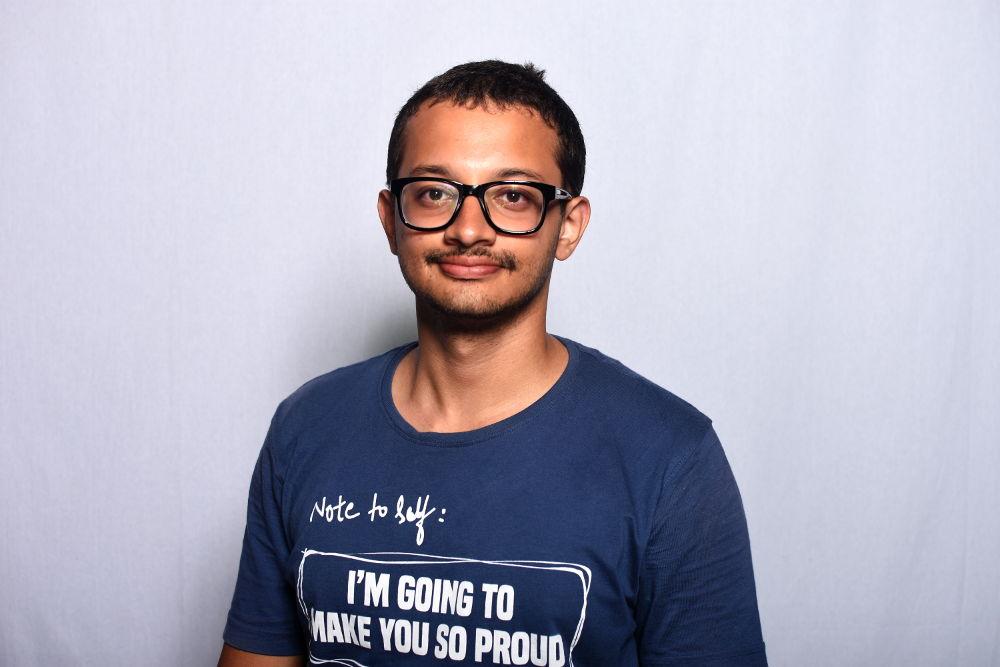Visa interview: These two words are sufficient to send shivers down the spine of a prospective interviewee. And this is not without reason, because a lot is at stake and the result of this interview has a significant impact on determining the trajectory of one’s career. Specifically, the process to get a student visa (also referred to as an F1 visa) is rather complex, and if the dynamics are not fully taken into account, it is very easy to be rejected in the interview. This particular visa is most widely used by STEM students to enter the United States.
Out of about 34,000 students here at NC State, 4,800 are international students from 120 countries, all of whom had to go through the same nerve-wracking process to interview for a visa to come to this country.
I always wanted to complete my higher education from somewhere outside India, and when it comes to technology and science, the United States of America is the first country that comes to the mind of any student. Within the U.S., NC State was the university that caught my eye, because of its curriculum and research-oriented approach. Looking back, it was one of the best decisions I have made in my life.
Not too long ago, I too had to prepare for my visa interview. Everything was in place, yet I knew a minor slip in the interview could throw all of my preparation for joining NC State off track. A visa applicant can attempt the interview multiple times, but the pressure associated with it increases exponentially with every failed attempt.
The worst part is that you are never told the reason for your rejection. The visa officer simply hands you a pamphlet with 15 points on which you may be rejected, never giving the exact reason. The interview and causes of rejection are recorded, and every time you give it another shot, it is very likely that your interviewing officer knows the reasons of your rejection. Since you don’t know them, it is very difficult to make amends and be sure that those amends are what was needed.
Fortunately, my visa was approved in the first attempt, but not everyone is that lucky. For instance, one of my friends was rejected four times before finally being approved and we do not yet know the reasons of his rejection all those times.
I say that I was approved for a visa the first time itself, but it required a lot of preparation on my behalf. The visa interview questions are roughly from three broad categories: your personal information, financial support system and knowledge about the education system in the United States. However, there are two questions which can arguably be the make-or-break questions: How will you sustain yourself, and do you have any relatives in the U.S.?
The first question has direct bearing on your ability to complete your degree without dropping in between due to financial stress. The second question has a deeper undertone: The U.S. is the international hub of engineering, technology and development. Most of the population in the world would prefer to settle here because of the kind of lifestyle it offers, and this increase in international population is not good for any country, simply because it increases the competition for resources available.
Having a relative here reflects negatively on your interview profile in most cases, as that would imply a higher probability of you settling down in the country. Hence, most people tend to avoid giving a positive answer for the second question. Another way to deal with it is showcasing the reasons you would go back to your country, like your parents, ancestral property and so on.
While my interview itself was not out of the ordinary, the time preceding it was filled with anxiety. Added to the pressure of facing the interview was the fact that the officer who intended to take my interview had already rejected three people before me, and one of them had a better command over English than what I did at that time. This caused even more nervousness.
NC State hosts a lot of international students. Consequently, most of the research and innovations carried out in the university is done by international students. The university would benefit by helping the students it has offered admissions to and has received confirmation from.
If the university creates tutorials/brochures regarding the interview and hands them to the students for preparation, it would have multiple advantages. Firstly, it would convey to the students that they truly are welcome to NC State, and it is looking forward to being their home. This is a tremendous confidence boost for the students. Secondly, NC State will not lose their talent pool due to visa issues.
Overall, a visa interview is a very important and enriching experience. It taught me that every interview requires different types of preparation, and that clear and concise answers are appreciated by the interviewers. One must maintain one’s cool in the interview and focus on one’s preparedness, rather than worrying about the factors which are beyond control.
It is well within the right of any country to be strict to the incoming students if it is against any of their country’s interests, yet if we take care of the basics, we increase the probability of our visa getting approved.














